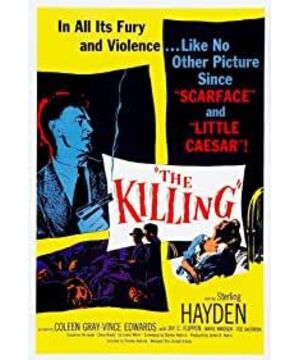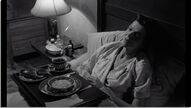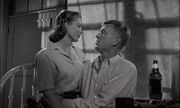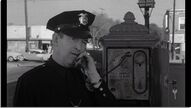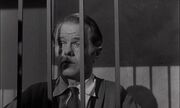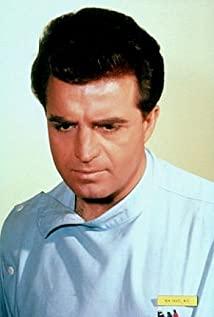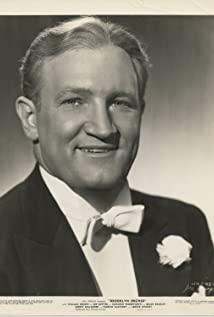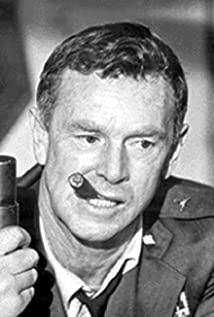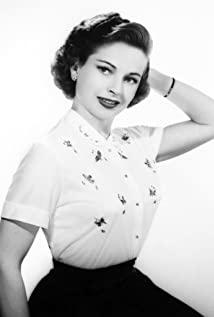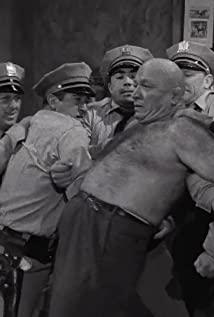The 27-year-old François Truffau made his feature film debut, "Four Hundred Strikes" , which shook the film world. What about the 27-year-old Stanley Kubrick?
It now appears that Kubrick's status in film history is higher than that of Lufer. His classic works are more, "2001: A Space Odyssey" , "The Shining" , "A Clockwork Orange" , all of which are outstanding in their respective genres.
It's just that his road to fame is a bit bumpy.
At the age of 27, Kubrick's feature film debut "The Killer" was released.
Please don't get me wrong, this is not a movie about killers.
Just for some reason, the English title "The Killing" will be translated into "The Killer" and it will be widely circulated. Maybe after a long time, no one made any corrections, and everyone defaulted to this Chinese title.
It's not that " The Killing " can't be translated as " killer ", but that it is really inappropriate and easy to mislead the audience.
The protagonist in the film is clearly a robber, not a killer.
One of the characters is a professional killer, but instead of collecting money to kill people, he collects money to kill horses. He is just a small puzzle of the whole big puzzle, not the most critical figure, so the identity of the killer cannot be represented.
The film is adapted from a novel called "Clean Break", without directly using the title, probably because of market factors. " The Killing " is obviously more attractive than "Clean Break".
Translated into Chinese, in addition to "killer", it can also be "murder" or "to kill".
If you have to choose one, "Killing" should be more appropriate.
Because the key scene is a tragic killing. Moreover, the whole story is a killing of fate.
The talented player Kubrick is unwilling to make an ordinary robbery crime movie. He also wants to do something more groundbreaking like Truffaut.
Thinking left and right, he pointed his aim at the narrative.
Let alone the 1950s, before the 90s, most movies tell stories in chronological order. It was not until the popularity of "Pulp Fiction" that non-linear narrative films became a mainstream.
One advantage of breaking the chronological order is to show the most exciting part to the audience first.
"Killing" does just that, and the opening scene is a robbery scene that puts the top priority.
The sonorous soundtrack ignited emotions, and the racecourse began the fifth race of the day. A strange man bought a bet that must be lost, then wrote a mysterious address and time, and gave it to the two staff of the racecourse.
The action is going on, but the narrator didn't clearly say what they were doing, leaving a suspense for the audience.
This operation completely caters to Hitchcock's "explosion theory".
It is to let the audience know that there is a bomb, but do not tell the audience when it will explode, and the suspense will hang the audience until the end of the film.
Kubrick should have wanted to take care of the audience's feelings. In addition to Hitchcock's "Suspense Dafa", "Killing" is also accompanied by a narration that helps the audience understand the plot.
The narration did not explicitly say that the strange man and the two staff members were planning a robbery, but the word "huge sums of money" had already implied that something big would happen, and planted a "bomb" that did not know when to explode for the plot.
Not worthy of narration, only to explain through details such as props, the film will be more artistic. However, as a rookie director, Kubrick has to prove his ability to sell tickets, and later filming is better to get the investment. After all, the new wave of French films had not yet begun, and the power of filmmaking was still in the hands of major studios.
At that time, the narrative mode of disrupting the timeline was not popular, and the audience would definitely be confused if they didn't explain it.
I think that Griffith's first multi-line narrative masterpiece, "Party Together Facing Differences" , was defeated at the box office because the audience couldn't understand it.
Overestimating the public's ability to accept new things is often at a disadvantage.
With time to narrate the new scene, Kubrick told the story very clearly.
To put it bluntly, it was Johnny Clay, a robber who had just been released from prison. His nature was hard to change, and he planned to rob the racecourse together. There are a lot of people betting on horses on the racecourse, and all the bets will be put in an office. Johnny needs to break into the office and then take the money out of the racecourse.
In order to achieve the goal, Johnny must get the help of the racecourse staff.
So he hired the counter employee George, and the bartender Mike as the insider.
That is to say, at the beginning of the movie, the two with the address and time notes were taken away.
As a good friend of Johnny, Mr. Unger, who looked down on gambling all his life, also came to help. He is the first character to appear in the film, and his mission is to deliver a message on the racetrack.
Outside the field, Johnny also found police Randy as a "foreign aid" to complete the most critical step in the entire plan.
Five people formed a one-off criminal group. After everyone said good things were stolen, they went their own way and never met again to avoid police investigation.
Such a plot inevitably reminds people of "Eleven Arhats", "Fast and Furious 5", and "Operation Swordfish" these gangs commit theft films.
I believe that with Kubrick's ability, it is not difficult for him to shoot a work similar to the master of theft film "Cheat in Cheat" more than 60 years ago .
"Cheat in Cheat" was released in 1973 and achieved box office success with its tightly interlocking plot.
If Kubrick used the structure of "Cheating by Deception" , he would first explain that Johnny was released from prison, and then explain why he had to rob and what the consequences of the failure of the robbery would be. Mike and George joined the team because of his wife. In the first act, we strictly follow the instructions in the movie textbook.
Then the second act finds a helper and starts to plan how to grab, the middle part of the plot is left blank, and the foreshadowing is set, the third act is the official start of the grab, and finally the previous blank part is revealed, the plot is reversed, and the smooth action starts to be troublesome. .
The resulting effect is bound to win applause and box office sales. The classic level of "Cheat in Cheat" may be greatly reduced by this.
But Kubrick did not.
On the one hand, it may be that he does not want to do this, and does not want his film to be too commercialized. Although the concept of "author and director" has not yet been proposed, he already has the heart of an author and director;
On the other hand, the story involves a plot of disillusionment, which is different from the ending of "Cheat in Cheat" where justice triumphs over evil.
Robbery is a crime after all. Since Johnny's motives have not been explained, traditional morality is not on his side. Writing a story of a criminal's total victory, whether in a novel or a movie, is a big risk. It's hard to find things like "The Very Suspect" .
Then the disillusionment plot is very suitable for Johnny gang.
The intense plot that has been advancing in layers has turned into a disillusioned ending, which is a bit abrupt.
Disrupting the timeline can not only advance the climax part and tell the story more exciting and attractive, but also can rearrange the positive and negative emotional load of the dominant thought.
"Cheat in Deception" uses the encounter of the characters to balance the positive and negative aspects of the ongoing plot. When the protagonist is chased and killed, it is negative. The gangster forces control everything. When it finds a mentor, there is hope of revenge, it is positive, and justice has a chance to be served. .
In "Killing" , the negative load of Johnny and the group is mainly concentrated on George. But if you shoot in chronological order, the second act will show the contradiction between him and his wife to balance the positive and negative emotional load, then there will be no surprises at all in the accident of the third act.
Using non-linear narrative, when talking about George and his wife, the seemingly seamless plan encountered a huge crisis.
Under Kubrick's ingenious arrangement, the positive and negative emotional load in the middle of the film has been effectively balanced.
Therefore , the narrative of "Killing" is groundbreaking and has practical effects. Kubrick did not use nonlinearity simply to show off his skills.
This film is 38 years earlier than "Pulp Fiction", which leads non-linear narratives, and 42 years before the same multi-line noir film "Two Smoke Guns" . Quentin and Guy Ritchie, in Kubu In front of Rick, there is no exaggeration, really can only be regarded as a small attendant.
Even Nolan, who is addicted to "2001: A Space Odyssey" , and his "Batman: The Dark Knight" , even have traces of suspected tribute to "Killing" .
It is a pity that "Killing" is not a bright spot in the list of Kubrick's overly dazzling career works, and many people have overlooked it. This is the true master of nonlinear narrative films.
When it was released that year, even if Kubrick was willing to add a narration, it was still difficult for the audience to get used to this advanced narrative mode.
"Killing" lost at the box office, and Kubrick failed to become famous like Truffaut.
Fortunately, the film has been recognized by many people in the industry, and Kubrick still got the opportunity to continue filming. One of those who recognized him was Kirk Douglas, the father of "Ant-Man" Michael Douglas.
With the support of Kirk Douglas, Kubrick shot two high-reputation works " Road to Glory" and "Spartacus" , and the road to the gods has since been on the right track.
View more about The Killing reviews


